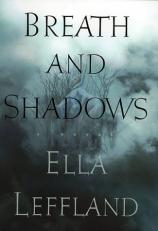Reading Group Guide
Discussion Questions
Breath and Shadows

1. Ella Leffland has said that this book is, in part, about "the idea of truth." Thorkild has spent most of his life writing about the nature of truth, even sending his ideas on the subject to Goethe; Paula, obsessed with her appalling sculpture, feels that she'll find truth in the stone. Where do they each find a personal truth? Or do they?
2. Although Olaf's anthropomorphic qualities are an illusion, Grethe has seized on him and the silhouette of her grandfather who'd been killed in action at Leipzig. What is it that makes them a focal point for her hallucinations? Are they merely arbitrary, or representative of something else?
3. Grethe and her great grandfather became mentally ill and Paula, one hundred years after Grethe, would be considered at least eccentric. However, their conditions would appear to be significantly different. Thorkild it might be said, went mad with sorrow, while Grethe developed schizophrenia. Looking at the family tree, is one to infer some sort of genetic connection?
4. Denmark had once been a large empire, stretching over Greenland Iceland, Norway and Sweden. Over the years the empire disappeared, until by 1888 it had been reduced to a small European country. What would be the likely long-term effect of this on the populace of Denmark or a country in a similar position? Do they accept it gracefully? Rearm and reconquer? Or make other changes?
5. Though born horribly deformed, Thorkild at least had the protection of wealth. His treatment at the hands of the locals while travelling makes one wonder what would become of someone with similar afflictions but born a pauper. What would have been his fate? How would he have been treated in late nineteenth-century Europe?
6. When Grethe's admitted to the sanatorium it's made clear that she'll have complete bed rest for one month, which means no letters, visitors, or reading. To a person in precarious mental health, wouldn't this be detrimental? Did anyone really recover under a regimen like this?
7. Much of the book is set in Denmark--a northern maritime country with a short summer. Discuss the part played by the weather and the environment.
8. One can sense from the conversation at the soiree and elsewhere that the Europe of 1888 is in a state of cultural upheaval. There's much talk of Nietzsche, Brandes, Bjornson, Zola and sexual freedom, yet it's apparent that the advocates of this are essentially upper middle class types whose way of life would vanish forever in twenty years. Who would be the heirs of the changes wrought by this upheaval? What would these changes be?
9. Why the sudden urge on the part of Philip and Paula to go in search of their father and his ancestors? After all, they'd long known about him, so why now?
10. This book covers some two centuries, reaches across two continents, and raises many questions as to the nature of being, truth and politics. What do you think, in general, the author was trying to get at?
Breath and Shadows
- Publication Date: March 17, 1999
- Hardcover: 320 pages
- Publisher: William Morrow
- ISBN-10: 0688142710
- ISBN-13: 9780688142711






